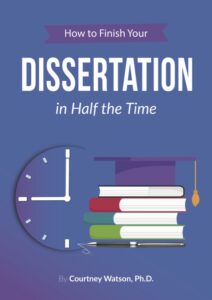The path to earning a Ph.D. can often feel like an obstacle course or a never-ending marathon of research, reading, and writing (so much writing!). Just when you think you’ll never see the light at the end of the academic tunnel, you defend your dissertation and your committee signs off on your degree. Congratulations, Doctor! Welcome to the club.
However, before the ink on your diploma is dry, another question looms large: What happens next? For many newly-minted Ph.D. holders, that question may not have a clear answer, and the future can feel uncertain.
Fear not, you have plenty of options. From teaching and consulting to working in the private sector or even pursuing more school (yes, really), the world is your oyster. Whether you’ve already finished your Ph.D. or it’s merely a speck on the horizon, it’s important to think about what you want to do with your degree (and also plan for the unexpected).
These are a few frequently asked questions about planning for life after Ph.D.:
- Should I pursue a career in academia?
- What is a post-doc?
- What are my options beyond academia?
- How can I build on my Ph.D.?
Pursuing a Career in Academia

“Is not for the faint of heart,” is one way to finish that sentence. I jest (I don’t). If you’ve spent enough time in academia to be thinking about life after your Ph.D., then you’re probably already well aware of the challenges that you’re likely to face on the academic job market. Of course, if your heart is set on becoming a college professor, then to the market you must go. But do so with the knowledge that the competition for tenure-track jobs in nearly every field is fierce.
The process for going on the academic job market begins about a year prior to your anticipated date of graduation. If you intend to go on the market, it’s a good idea to assemble your professional dossier the summer before your final year in graduate school. For most disciplines, the dossier includes a CV, a job letter outlining your qualifications, a 1-2 page teaching philosophy, a research statement about your program of scholarship, letters of recommendation from your faculty, and transcripts. You can probably see why it’s wise to get an early start.
Going on the academic job market while simultaneously finishing your dissertation and preparing for your defense can be overwhelming. For me, the experience of preparing to go on the market and then applying for faculty appointments while also wrapping up my Ph.D. felt like having a second full-time job. Add conferences, phone interviews, and campus visits into the mix, and it makes for a very busy year. If you choose to go this route, it helps to start early, seek out the support of a faculty member or job market coach, and stay organized.
What is a Post-Doc?
If you’re not quite ready to go on the job market after you finish your dissertation but you want to stay active in academia, a postdoctoral fellowship, better known as a postdoc, may be just the ticket. A postdoc serves as a kind of academic way station between graduate school and entering the profession as a faculty member. Postdocs are paid research and/or teaching fellows who are hired by universities to continue their scholarship and teach classes, unusually at the undergraduate level.

A postdoc may also be an attractive option for new Ph.D.s who need a year (or three) to get their bearings before taking the next step in their careers. Postdocs can be great opportunities to travel and do research at some of the most prestigious universities in the world. A postdoc can be an excellent way to advance your research and gain additional experience, as well as to add some shiny new lines to your CV.
Beyond Academia
Like many graduate students nearing the end of their Ph.D. programs, you may find yourself wondering if there is life outside of academia. Of course there is! However, successfully navigating it and making the best use of your time and resources takes guidance and a bit of trial and error.
While much of the job-related conversation in academia focuses on becoming a tenure track professor, a little research opens up a world of possibilities for job-hunting Ph.D. graduates.
In addition to faculty appointments, many Ph.D. holders are also well-qualified for other jobs within the university system in areas that include research and program coordination. Outside of the university, many Ph.D. graduates also find homes in government as policy wonks and subject matter experts. The private sector and the nonprofit world can also be places to put your expertise to good use.
Building on a Ph.D.

No matter which path you take, your education will provide a strong foundation for everything that comes next. As you figure out what your life after Ph.D. looks like, keep an open mind and pursue experiences that will help you build on your existing qualifications and maybe even branch out.
The most successful Ph.D. holders that I know have used their degrees as the first step of their careers, rather than the culmination of their education. No matter your degree, being open to all possibilities is a necessity in today’s dynamic and rapidly-changing world.
When I was a grad student planning for my life after earning my Ph.D., I imagined earning a tenure track job at a mid-sized, liberal arts college and living happily ever after. I was thinking too small!
Within a couple years of being on the job as an academic, I learned that my work could be a lot broader and more exciting than my grad school self could’ve ever imagined.
Since then, I’ve sought out opportunities across a variety of sectors, and, as a result, I’ve collaborated with amazing people, traveled the world, and challenged myself to keep learning and growing. The moral of the story: when you’re planning your life after Ph.D., think big.






